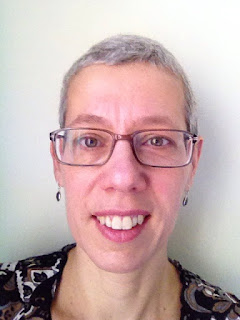Doesn't it?
I suppose I've got used to being a cancer patient, or, as I should probably say now, a cancer survivor (although that makes it sound a bit like I've been in a nuclear war). It is two years since we sat in the doctor's office, listening with trepidation as she displayed her chemical weapons of cell destruction. Since then, almost imperceptibly, cancer has been normalised.
I nod my head knowingly when I read articles or books about the debilitating impact of chemotherapy. Yep. Been there.
I put novel items on my holiday packing list. Pills. Swimming softie.
Ah, yes, the swimming softie. Trying to cool down from the heat of southern France earlier this month, dashing in and out of the Mediterranean Sea, it did strike me that perhaps my lack of concern about a missing breast is worth noting. In answer to the questions I asked myself in July 2014 (should I wear a softie in the pool? should I wear a swimming cap when I'm bald?): Yes, I do wear the softie, in the same way as I wear a fake breast in my bra, to balance my outfit. It's just part of what my bras and swimming costumes are like these days, top-heavy on one side. Who cares. Perhaps my tops are not as low cut as they used to be, but I don't feel limited by this, and feel no less comfortable in the heat.
I thought I'd tell you this, just in case there is someone out there, reading this blog, facing a mastectomy and worrying about future scar-filled summers. Of course we are all different in the way we cope and live with what life throws at us, but I am truly unbothered by my single-breast status.
So, thankfully, is my family. I don't hide anything when dashing in and out of the shower. (Not much left to hide! Ha!)
One day, when playing Ticket To Ride and placing my train carriages in Eastern France, one daughter exclaimed: "I know which route mum has! Brest to Petrograd! She only has one brest, that's why she wants to go there!" We all howled with laughter. I thought it was genuinely funny, but I was also rather moved, because when your children can joke about your mastectomy, then you know that life is back to normal.
There was one other moment, during those few weeks in France, that I felt the aftermath of cancer treatment. There we were, in one of those huge supermarché's that seem to be designed for a family day out. I had been hot and bothered by my hair. It was too long, too outgrown, and inconvenient if you're swimming three times a day. It had (alas) started to grow straight again, and my attempts to hang on to my lovely curls were increasingly futile. I mean, look at it. Too much like a regretted perm.
 |
| June 2016 |
 |
| July 2014: Comme ça |
It was the first time I was aware that I actually missed something about my cancer treatments. The convenience, ease and summer comfort of very short hair. And if that dreadful year of treatment has taught me anything, it's that none of it really matters. Not the number of breasts you have, nor the length of your hair.
So, here we are. Happy holidays.
 |
| July 2016: Voilà |
























